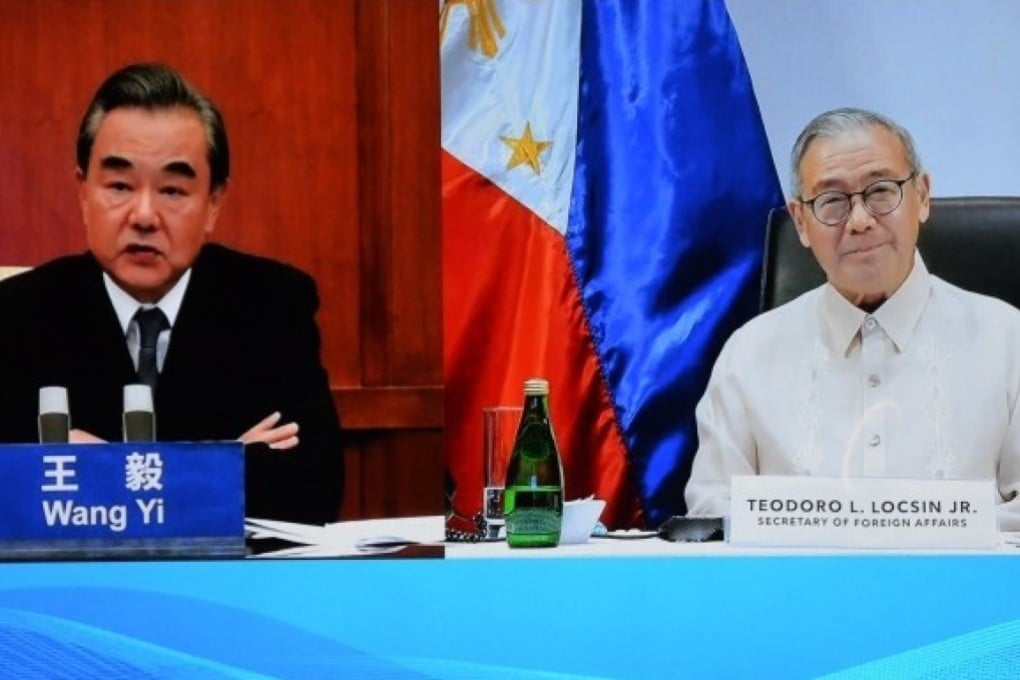Advertisement
Foreign ministers from China, Philippines discuss South China Sea after US statement from Mike Pompeo
- Wang Yi’s call to Teodoro Locsin came after the US issued explicit support for the 2016 arbitral ruling rejecting the legality of China’s nine-dash line
- While Duterte has aligned his country with Beijing, Manila has recently been more vocal about the disputed waterway
Reading Time:3 minutes
Why you can trust SCMP

China’s foreign minister Wang Yi called on Manila to cherish its hard-won friendship with Beijing and focus on bilateral cooperation, in a Tuesday conversation with his Philippine counterpart Teodoro Locsin Jnr that was prompted by an unusually sharp exchange of statements over the 2016 South China Sea arbitral ruling.
Beijing requested the video call, according to the Philippine Department of Foreign Affairs. “Both sides reaffirmed that contentious maritime issues are not the sum total of the Philippines-China bilateral relationship,” it said on Wednesday.
Wang also dwelled on the statement by US Secretary of State Mike Pompeo, who on Monday rejected most of China’s claims in the disputed waterway. Analysts say Washington’s full-throated stance signals more military activity in the South China Sea, and potential sanctions on Chinese entities to push back on Beijing’s influence.
Advertisement
A senior Philippine government official who asked not to be named said the call came about because Wang “wanted to hear directly from Locsin” after China “appeared to be somewhat surprised by the recent statements about the South China Sea”.
“What is interesting is the timing,” the official said. “It showed a certain anxiety on the Chinese side that there was no change in Philippine foreign policy.”
Since taking office in 2016, President Rodrigo Dutete has openly announced his desire to align the Philippines more closely with China and away from the United States, its traditional ally.
Advertisement
Select Voice
Choose your listening speed
Get through articles 2x faster
1.25x
250 WPM
Slow
Average
Fast
1.25x